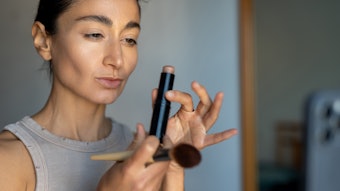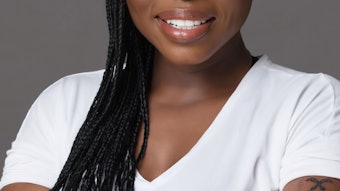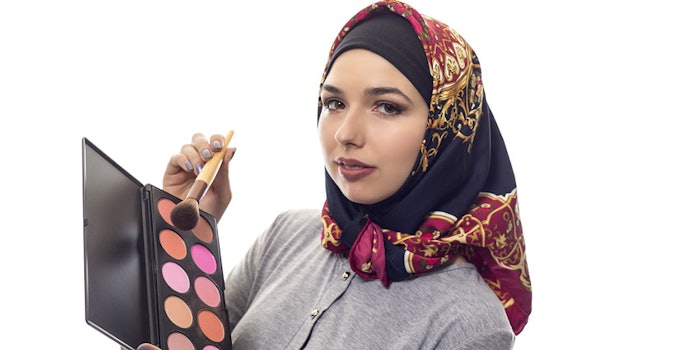
By the year 2025, the U.S. halal cosmetics market is expected to reach $52 billion dollars. This growth could be due in part to an influx of Muslim beauty influencers taking to social media to share favorite halal-certified brands with their followers, or the fact that consumers are becoming more conscious (and choosy) of the ingredients used in the products they apply to their face on a daily basis. Regardless, this market segment is one that mainstream retailers are rapidly embracing.
Global Cosmetic Industry had the opportunity to speak with Mohammad Nazir, D.Sc, OBE, a featured insight speaker at the upcoming 2017 International Halal Cosmetics Symposium (IHCS), regarding this dynamically expanding market sector and how halal cosmetic products can be marketed in the mainstream beauty industry to both Muslim and non-practicing Muslim consumers.
Global Cosmetic Industry (GCI): For those unfamiliar with the term ‘halal’ what does it mean and entail? What makes a product halal certified?
Mohammad Nazir (MN): Halal means permissible/acceptable. It is a term in the Western world which has been associated strongly with food, but the term halal is in fact used for everything and anything that is legally acceptable––from a Shariah law point of view––for the Muslim’s way of life: marriage, business, food and drink, etc.
In the cosmetics arena, halal two implications. Firstly, halal applies to the ingredients of cosmetic products and those ingredients’ origin. Secondly, halal applies to the effect a product will have once applied to the skin. Halal used in food and cosmetics implies the product is derived from a permissible source and it’s not harmful to use or eat.
We tend to talk a lot about halal, but not the opposite word which is “haram,” meaning impermissible or not permitted.
In the Abrahamic religion, pigs are described as “haram” particularly for human consumption. The reason being the pig’s foraging habits and lifestyle are considered impure. Any cosmetic products containing traces of pig protein and fat are considered haram and Muslims are not permitted to use such products. Halal cosmetics should not only be devoid of haram ingredients but also of chemical and ingredients that may harm the skin of the user.
GCI: How are halal cosmetics impacting the mainstream cosmetics market?
MN: There has been a tremendous increase in halal cosmetic products used in the mainstream market. While the products may not have a halal label on them, they are made from natural 100% halal ingredients, which is suitable for mainstream consumers seeking ethical, vegan and vegetarian products.
There is also a fast-growing market for cosmetics produced using natural, organic ingredients. Halal products by and large fall into this category.
GCI: Millennial consumers are a huge driving force in the cosmetics industry. How are Muslim millennial consumers driving this market?
MN: Over the last decade the power of the Muslim [British] pound has been recognized by the mainstream retailers and wholesalers targeting the Generation M [millennials], who are looking for good, quality halal lifestyle products.
Generation M [millennials] are quite affluent and very much have an interest in keeping with the mainstream trends so long as they fit into their halal life style. The majority of the younger Muslim consumers shop within the mainstream retail stores. These retailers have now started to list halal cosmetics products alongside their existing fast expanding halal food and meat product offering. All major multiples [in the U.K.: Tesco, Asda, Sainsbury’s and Morrisons] have significant halal product lines bought both by Muslims and non-Muslim shoppers.
Mainstream retailers recognize this trend is on the increase, therefore a conscious decision has been made to take first-mover advantage by taking in bigger halal brands and offering existing and new Muslim consumers a much better and wider choice.
GCI: On the IHCS website it states, “35% of halal cosmetics are purchased by non-Muslim women.” How can products be marketed to consumers who many not be practicing Muslims? Are there challenges bringing halal products into the mainstream retail environment?
MN: One brand that has 100% halal ingredients, from natural plant and flora, and also commands a strong position within the premium end of the cosmetics and beauty market is Shaznaz Hussain. The ethics, neutral branding and the power figure behind the brand have given the company success and endorsements by thousands of beauty practitioners both in her [founder Shaznaz Hussain's] home market and globally.
Product packaging, endorsements and lasting effects with ethical business practices would be the right way to introduce halal products to the mainstream market directly targeting consumers who uphold the above principles in life.
GCI: Often times consumers seeking ethical products will turn to halal brands. What is the connection between the two?
MN: Halal cosmetics tend to use biodiversity in their ingredients. Such ingredients have been tried and tested to provide results in wrinkle-free beauty for centuries not just for women, but also for men using natural non-animal derived ingredients, organic plants and natural minerals.
These principles are also shared by those pursuing ethical solutions to life, therefore, halal cosmetics are closely attuned to ethical products. Many, but not all, halal businesses follow ethical principles within their business ethos by keeping away from the exploitation of humans and usury-free business finances.
GCI: Why do you think halal products are beginning to make their way into the mainstream market now?
MN: There are multiple reasons for the increased availability of halal products in the mainstream market. First, there has been a major mind shift within the mainstream retail market sector in their realization of the potential to increase revenues by offering halal products to their existing Muslim customers. For the retailers, this is a fairly new, yet rapidly growing market. In many localities where retail outlets are based, the majority of the shoppers are Muslim who are keen to buy only halal products.
Second, the majority of the Muslim demography is young, under the age of 34, doing extremely well in earning a good level of income and are very much into seeking high-quality products that meet their religious requirements.
GCI: Does it have to do with social media and the internet having a major influence over consumers? Is it consumers being more open-minded?
MN: It is a bit of both. More and more products are being endorsed by very well established bloggers who have a very large following. Social media has played a major role in making halal cosmetics cool to use by bloggers who show that they are personally using them.
GCI: What did the halal cosmetics market look like prior to becoming more mainstream? Is there a difference now for Muslim consumers?
MN: The halal cosmetics market has always existed and has been quite substantial, but it has not been regulated by a halal standard until recently. A number of Muslim countries have invested in developing halal standards for the cosmetics industry. Plus, a lot of research is now available categorizing in detail the origin of ingredients used in the manufacturing of cosmetics and other products. This has enabled halal certifiers to provide better guidance to cosmetics manufacturers on what they can or cannot use.
A whole new industry has grown on the global scale, Muslim consumers are a lot more confident. Halal certified cosmetics products are truly halal and these consumers can confidentially go out and buy these products. Halal cosmetics have received a lot of attention from the mainstream and major investments have been made in marketing the halal cosmetics industry, especially in the Gulf Cooperation Council (GCC), but also globally by major mainstream brands.
Mohammad Nazir is currently Chairman of Ummah Group, a group of companies that have developed the very first mobile super app platform offering convergence and disruptive technology in communications, money remittances and Halal lifestyle services to the global Muslim community. The Ummah Mobile Super App will be launched at the end of this year. He has managed a successful global business development consultancy firm since 1992 offering services in global branding, business growth, product innovation, marketing and equity finance. He is also an international speaker on business innovation and growth, economic and social welfare development as well as on developing Shariah compliant business and products, Islamic Finance and halal product innovation. In 2010, he was awarded an OBE by Her Majestic The Queen for “his services to business."
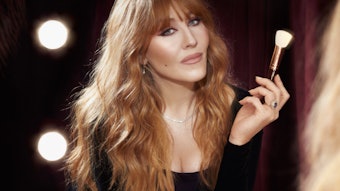
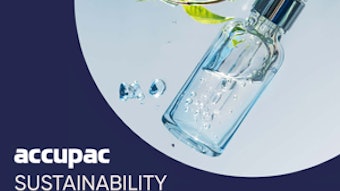

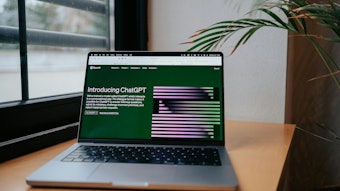

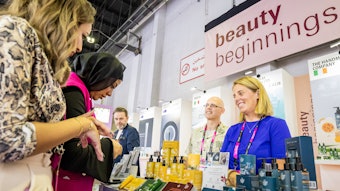
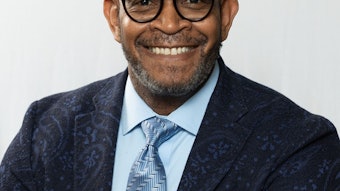
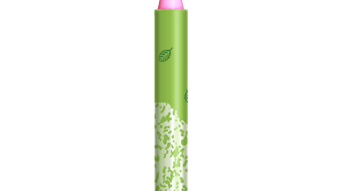
![According to the Personal Care Products Council, 'Between 1990 and 2022, the [U.S.] personal care products industry generated a trade surplus every year, reaching $2.6 billion in 2022...'](https://img.gcimagazine.com/mindful/allured/workspaces/default/uploads/2025/08/adobestock-353393403.MryFiCWzOJ.jpg?auto=format%2Ccompress&fit=crop&h=191&q=70&w=340)
